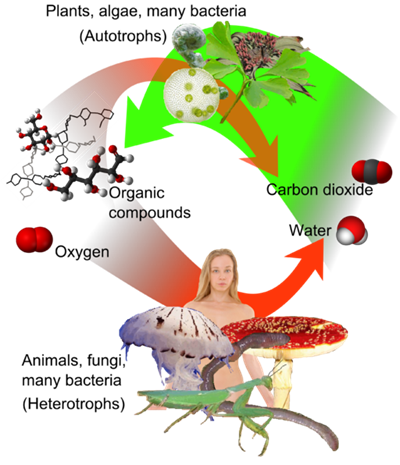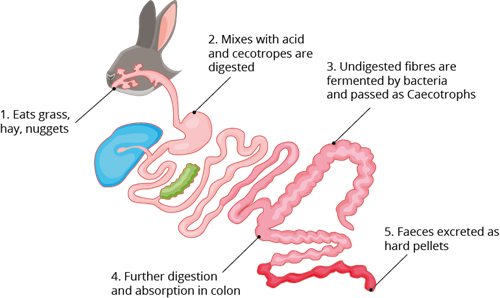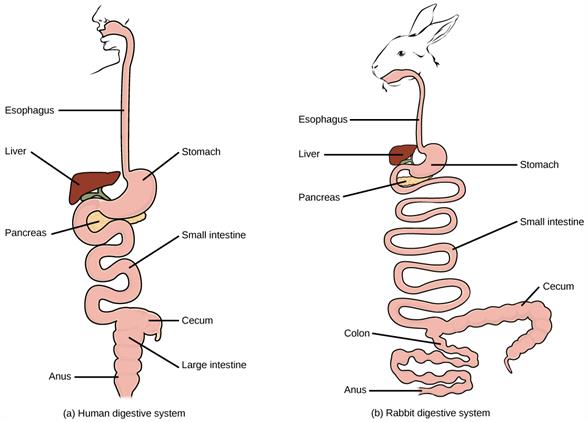PDF chapter test TRY NOW
Herbivores eat plants, and to get the essential amount of nutrients, and they have to eat all day. You could have observed a goat eats a large amount of plants throughout the day.

Autotrophs and Heterotrophs
This much amount of food consumption is essential for a goat as getting nutrients from the plant fibres is difficult.
The process of digestion involves the following steps.
- Ingestion
- Digestion
- Absorption
- Assimilation
- Egestion

Process of digestion
The rabbit digestive system
What happens in the digestive system?
The steps involved in the process of digestion is explained below.
Ingestion
\(\huge{\downarrow}\)
Digestion
\(\huge{\downarrow}\)
Absorption
\(\huge{\downarrow}\)
Assimilation
\(\huge{\downarrow}\)
Egestion

Comparison of Human and Rabbit digestive system
Ingestion:
Ingestion is the process by which food is consumed by an organism. In the rabbit, the ingestion of food happens in the mouth. Chewing and swallowing are the modes of ingestion of food in the rabbit.
Digestion:
Digestion is the process of breaking down complex food materials into simpler forms that will be absorbed and assimilated by the body. The digestive system converts the foods we eat into their simplest forms, like glucose, amino acids and fatty acids. The digestive system of the rabbit is made up of the alimentary canal and its associated digestive glands. The alimentary canal is the location where food is digested and absorbed.
Absorption:
As a result of digestion, complex molecules are broken down into simpler forms. These simpler forms of nutrients like glucose, amino acids and fatty acids are absorbed by the small intestine. This process is called absorption.
The rabbit is a herbivore, which means it can ingest an enormous amount of plant materials. The plants that rabbits eat are heavy in fibre, which mammalian digestive enzymes cannot digest. Hence their alimentary canals have a long coiled tube with varying diameters to ensure that they obtain enough nutrients from the plants.
Assimilation:
After absorption, broken-down food has to be transported into the bloodstream to each cell of the body from the small intestine. This process is called assimilation.
Egestion:
After absorption, the indigestible food materials remain in the digestive tract. These indigestible substances are removed from the body through the anus by the process called egestion.
Reference:
https://upload.wikimedia.org/wikipedia/commons/7/7a/Figure_34_01_05ab.jpg
